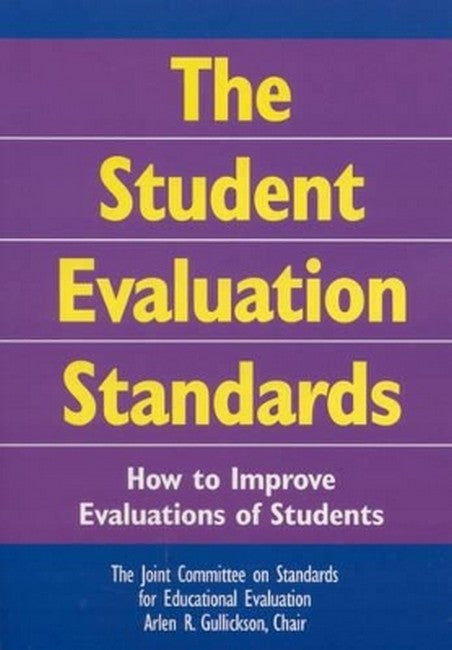Arlen R. Gullickson, Ph.D., is professor emeritus at Western Michigan University. He served as The Evaluation Center director from 2002 to 2007 and as its Chief of Staff of from 1991-2002. Dr. Gullickson chaired the Joint Committee on Standards for Educational Evaluation from 1998 to 2008 during which time the Committee developed The Student Evaluation Standards (2002), revised The Personnel Evaluation Standards, Second Edition (2007), and was engaged in revising The Program Evaluation Standards, Second Edition (1994) for the 3rd edition published in 2010. He has worked extensively in education as a secondary math and science teacher, professor of educational research and evaluation, and in the conduct of federally funded research and evaluation projects. In 2011 he stepped down from directing an NSF funded Advanced Technological Education evaluation resource center (EvaluATE) to become its co-director. He has received several major service awards including: the Western Michigan University's Distinguished Service Award (2002), the American Evaluation Association's Alva and Gunnar Myrdal Evaluation Practice (2007), and the Consortium for Research on Educational Accountability and Teacher Evaluation's Jason Millman Scholar award (2oo8). Although his primary work emphasis for the past 20 years has focused on program evaluation, he maintains a strong interest in classroom evaluation practices. He has authored numerous journal articles, book chapters and book materials. With Peter Airasian he authored the Teacher Self-Evaluation Tool Kit (1997) which presaged many of the ideas presented in this book.
Request Academic Copy
Please copy the ISBN for submitting review copy form
Description
Functional Table of Contents The Joint Committee Acknowledgments Invitation to Users Preface Introduction Applying the Standards The Standards 1. Proprietary Standards Service to Students Appropriate Policies and Procedures Access to Evaluation Information Treatment of Students Rights of Students Balanced Evaluation Conflict of Interest 2. Utility Standards Constructive Orientation Defined Users and Uses Information Scope Evaluator Qualifications Explicit Values Effective Reporting Follow-Up 3. Feasibility Standards Practical Orientation Political Viability Evaluation Support 4. Accuracy Standards Validity Orientation Defined Expectations for Students Context Analysis Documented Procedures Defensible Information Reliable Information Bias Identification and Management Handling Information and Quality Control Analysis of Information Justified Conclusions Metaevaluation Appendix: The Support Groups Appendix: Checklist for Applying the Standards Glossary Index
"Teachers make judgments about students every day, based on such formal and informal appraisals of their work as classroom observation, homework assignments, and teacher-made quizzes. Soon, they'll have the first set of professional standards to help guide them in making such decisions." -- Education Week " . . . is [a] recommended and seminal reference which competently and accessibly address the issues of Propriety Standards, Utility Standards, Feasibility Standards, and Accuracy Standards." -- Library Bookwatch, February 2003 "This book is rich with illustrative evaluation cases and analyses and is intended to aid all those who conduct or use student evaluations. Appropriate for teachers, parents, school board members, school administrators, and professors of teacher education, this volume is a must-read that will enrich reflective practice of evaluation of student learning at the elementary and secondary levels." -- CHOICE, May 2003

